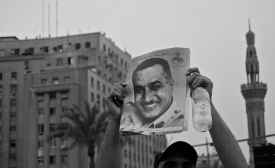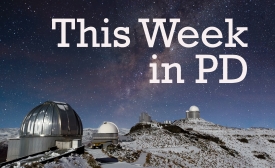syria
Standing at the front of a conference hall in Doha, the visiting sheikh told his audience of wealthy Qataris that to help the battered residents of Syria, they should not bother with donations to humanitarian programs or the Western-backed Free Syrian Army. “Give your money to the ones who will spend it on jihad, not aid,” implored the sheikh, Hajaj al-Ajmi, recently identified by the United States government as a fund-raiser for Al Qaeda’s Syrian affiliate.

CPD University Fellow Laurie Brand considers the evolution of Middle Eastern nation branding with a focus on Algeria and Egypt.
US Secretary of State John Kerry and Defence Secretary Chuck Hagel, pressed a core coalition of 10 nations at a NATO summit in Wales on Friday to go after the Islamic State (IS) in Iraq and Syria militarily and financially. "There is no time to waste in building a broad international coalition to degrade and, ultimately, to destroy the threat posed by the Islamic State," Kerry and Hagel said in a joint statement.
Photographs purportedly showing more than 40 UN peacekeepers seized by Islamist militants on Syria’s side of the Golan Heights – along with their identity cards – have been posted on social media. The al-Qaeda linked Nusra Front says the captives, all from Fiji, were detained on Thursday because their UN mission was helping Syria’s government and had ignored the suffering of its people. It says they are being treated well.
In a polarized region and a complicated world, the Islamic State in Iraq and Syria presents a unifying threat to a broad array of countries, including the United States. What’s needed to confront its nihilistic vision and genocidal agenda is a global coalition using political, humanitarian, economic, law enforcement and intelligence tools to support military force.

Social media and digital diplomacy have dominated the week in PD.
In the UK’s biggest ever response to a humanitarian crisis, the government has committed over £600 million to help those affected by the conflict in Syria – the second highest total after the US. Aid is being allocated to help a million refugees in Syria, Lebanon, Jordan, Turkey and Iraq.
In this crisis-heavy summer, once high-priority missions are quickly falling off the public's - and sometimes the national security establishment's - radar. Even the biggest of U.S. military missions - Afghanistan, where roughly 29,000 U.S. troops are deployed -- seems to be on Washington's back burner compared with Ukraine and the threat of the Islamic State. But the commanders running these operations, as well as the personnel carrying them out, certainly haven't forgotten. The Pentagon's top five "forgotten missions" follow.







